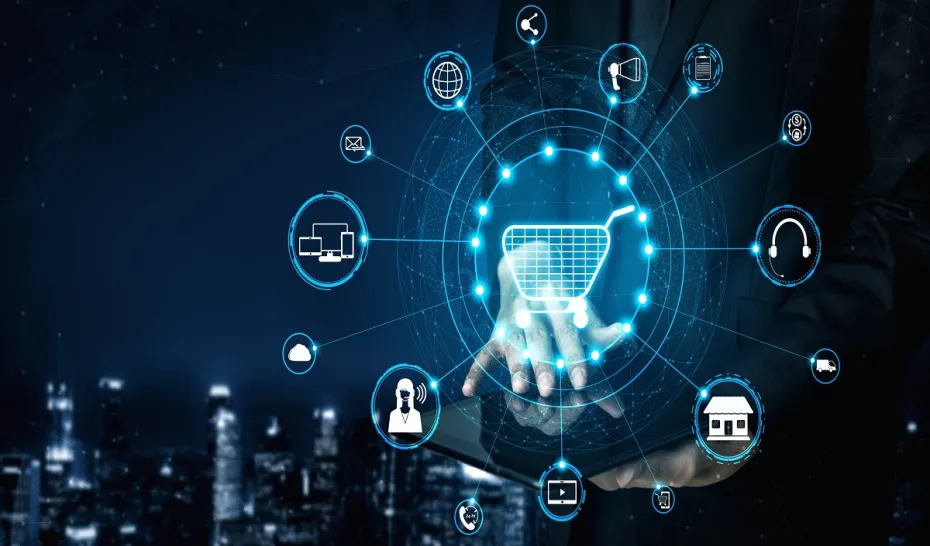How Tech is Revolutionizing Retail Outsourcing
In an era where innovation accelerates at an unprecedented pace, the retail industry stands as a testament to the transformative power of technology. The age-old practice of retail outsourcing, once driven by the basic needs for cost-cutting and efficiency, is undergoing a profound metamorphosis, fueled by advancements in technology. The result is a landscape where retailers can achieve unprecedented levels of operational efficiency, customer satisfaction, and market agility.
At the core of this revolution is the integration of artificial intelligence (AI) and machine learning (ML). These technologies are redefining how online retailers manage their supply chains, understand consumer behavior, and personalize shopping experiences. AI-powered analytics tools sift through vast amounts of data, identifying patterns and trends that would be impossible for human analysts to detect. This allows retailers to predict demand with greater accuracy, optimizing inventory levels and reducing waste. The ripple effect is profound: outsourced partners, now armed with precise data, can manage production schedules, staffing, and logistics with pinpoint accuracy, ensuring that products reach shelves just in time to meet consumer demand.
Machine learning, a subset of AI, takes these capabilities further by continuously learning from new data. For instance, dynamic pricing algorithms adjust prices in real-time based on factors like demand fluctuations, competitor pricing, and even weather conditions. This responsiveness not only maximizes sales and margins but also enables outsourced customer service teams to handle inquiries with AI-driven chatbots, providing instant, accurate responses that enhance customer satisfaction.
Moreover, the advent of cloud computing has revolutionized the way retail data is stored, accessed, and shared. Gone are the days of cumbersome, localized data storage systems. Today, cloud platforms offer scalable, secure, and accessible solutions that empower retailers and their outsourcing partners to collaborate seamlessly across geographical boundaries. This connectivity ensures that everyone in the supply chain, from manufacturers to logistics providers, operates from the same real-time data, reducing errors and enhancing efficiency.
The rise of the Internet of Things (IoT) further amplifies these efficiencies. IoT devices, embedded with sensors, provide real-time monitoring of everything from inventory levels to equipment health. In warehouses managed by outsourced logistics providers, IoT-enabled systems can track the movement of goods with incredible precision, reducing the risk of loss or theft and ensuring timely deliveries. Additionally, smart shelves equipped with sensors can alert staff when stock levels are low, triggering automatic reorders from suppliers and minimizing out-of-stock situations.
Blockchain technology is another game-changer in the realm of retail outsourcing. Known primarily for its role in cryptocurrency, blockchain’s decentralized ledger system offers unparalleled transparency and security. For retailers, this means every transaction, from the initial procurement of raw materials to the final sale, can be recorded in an immutable ledger. This transparency ensures accountability and trust among all parties involved, from suppliers to end consumers. For outsourcing partners, it simplifies processes such as verifying the authenticity of products and ensuring compliance with regulations.
The digital revolution extends to the very frontlines of global commerce – the store itself. Augmented reality (AR) and virtual reality (VR) are transforming how consumers interact with products. Ecommerce enterprises are outsourcing the development of immersive AR and VR experiences that allow customers to visualize products in their homes or try on virtual apparel. This not only enhances the shopping experience but also reduces return rates, as customers make more informed purchasing decisions.
Additionally, the rise of e-commerce has driven the need for sophisticated logistics solutions. Outsourced logistics providers now rely on advanced robotics and automation to manage fulfillment centers. Automated guided vehicles (AGVs) and robotic arms work alongside human employees to pick, pack, and ship orders with remarkable speed and accuracy. This automation is crucial in meeting the expectations of today’s consumers, who demand fast and reliable delivery services.
The final piece of the puzzle is cybersecurity. As retail companies increasingly rely on digital systems and outsourced partners, protecting sensitive data becomes paramount. Advanced cybersecurity measures, such as AI-driven threat detection and blockchain-based security protocols, are being implemented to safeguard against cyber threats. Outsourcing firms specializing in cybersecurity are becoming essential partners, ensuring that retailers’ digital ecosystems are robust and resilient.
Technology is not just enhancing retail outsourcing; it is fundamentally transforming it. From AI and ML to IoT and blockchain, these advancements are creating a more efficient, transparent, and responsive retail ecosystem. Retailers who embrace these technologies and collaborate with forward-thinking outsourcing partners will be well-positioned to thrive in the competitive landscape of modern commerce. The future of retail outsourcing is bright, driven by innovation and the relentless pursuit of excellence.


















